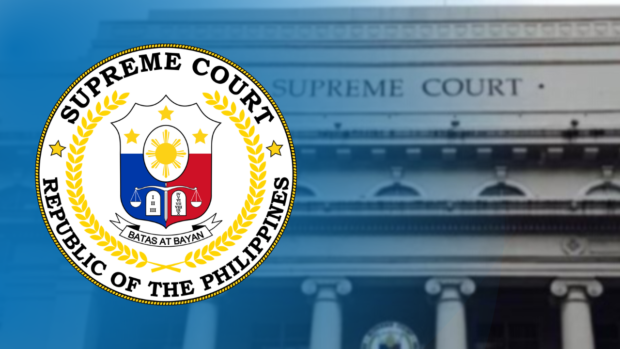SC junks plea to stop implementation of SIM Registration Act

Supreme Court. INQUIRER FILE PHOTO
BAGUIO CITY, Philippines — The Supreme Court has rejected the bid to stop implementing Republic Act 11934 or the Subscriber Identity Module (SIM) Registration Act.
“The Supreme Court, during its en banc (full court) deliberations today, (Tuesday), denied the prayer to issue a temporary restraining order in National Union of Journalists of the Philippines Inc., et al. vs. the National Telecommunications et al.,” the SC said through its Public Information Office (PIO).
Instead, the SC has ordered government agencies and public telecommunication entities to comment on the petition seeking to declare as unconstitutional the SIM Registration Act.

Government agencies named respondents in the case are the National Telecommunications Commission, the Department of Information and Communications Technology, the National Privacy Commission, the Departments of Trade and Industry, and the Interior and Local Government, and Education.
Also tagged as respondents are Globe Telecom Inc., Smart Communications, Inc., PLDT Inc., Dito Telecommunity Corporation, and Digitel Mobile Philippines, doing business as Sun Cellular and Cherry Mobile Communications Inc.
The respondents were given 10 days to submit their comments.
The petition assailed the law for supposedly violating the public’s right to free speech, privacy, and due process because RA 11934 lacks the security and means to protect the information that the public will provide when registering their SIM cards.
Under the SIM Registration Act, all current SIM subscribers must submit a completed form through the websites offered by telecommunications companies. Otherwise, the SIM will be deactivated.
Proponents said the purpose of the law is to deter illegal acts committed through short messaging/message service or SMS technology and to help law enforcers track alleged criminals.
The National Telecommunications Commission said that 75.5 million SIM cards were registered as of April 20 which is only 45 percent of the total 168 million SIM cards that are currently in use nationwide.
Aside from NUJP, petitioners include journalist Ronalyn V. Olea, Lumad leader, and former Bayan Muna Partylist representative Eufemia C. Cullamat, BAYAN Secretary-General Renato Reyes Jr., mother of two tokhang victims Llorre Benidicto Pasco, transgender man Dean Matthias Razi Timtiman Alea, information technology professional Maded Batara III of Junk SIM Registration Network, fisherfolk leader Alberto Roldan of PAMALAKAYA, peasant leader Danilo Hernandez Ramos of Kilusang Magbubukid ng Pilipinas, and lawyer Michael Christopher de Castro.
RELATED STORIES:
SIM card registration extended for 90 days — DOJ
Socmed services inaccessible for unregistered SIM cards despite extension
SIM card registration: A step-by-step guide